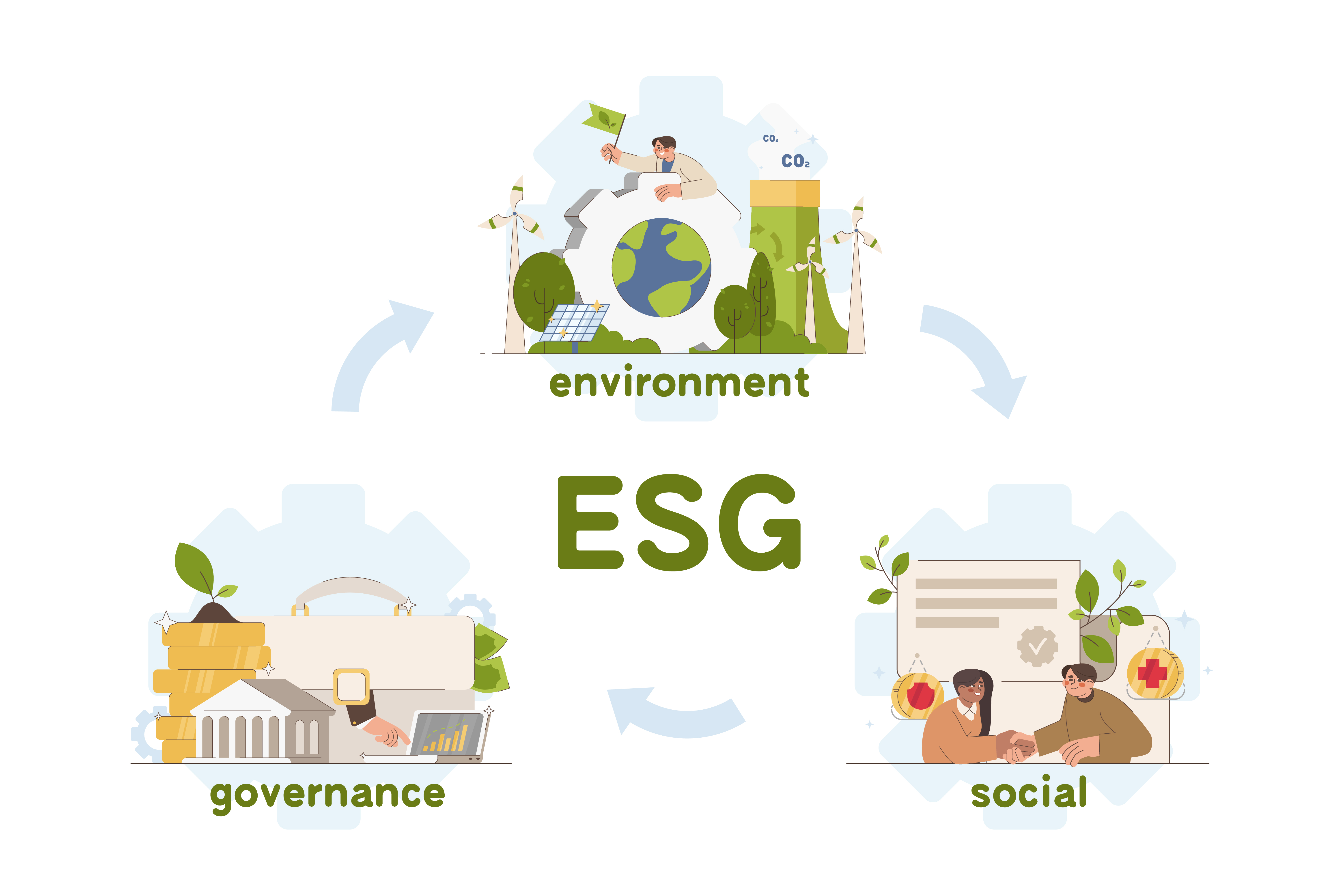Navigating ESG Investments: Incorporating Environmental, Social, and Governance Factors into Your Portfolio

In today’s investment landscape,ESG investments is getting the attention of more and more people. But what exactly are ESG investments, and how can you incorporate them into your portfolio? In this guide, we’ll break down the basics of ESG investing in simple language, helping you understand what it’s all about and how you can get started.
Understanding ESG Investments
ESG stands for Environmental, Social, and Governance. These are three key factors that investors consider when evaluating a company’s or investment opportunity’s sustainability and societal impact.
- Environmental: This aspect focuses on how a company’s activities impact the environment. It considers factors like carbon emissions, energy efficiency, waste management, and resource conservation.
- Social: social factors assess how a company interacts with people, both within and outside the organization. This includes issues such as labour practices, diversity and inclusion, human rights, community engagement, and product safety.
- Governance:Governance refers to the way a company is managed and controlled. It looks at aspects like board diversity, executive compensation, shareholder rights, transparency, and anti-corruption measures.
By considering these three factors, investors aim to support companies that are financially sound, socially responsible, and environmentally sustainable.

Why ESG Investments Matter
There are several reasons why ESG investments have gained popularity in recent years:
- Risk Management: Companies that prioritize ESG factors are often better equipped to manage risks related to environmental regulations, social controversies, and governance issues. By investing in these companies, investors can potentially reduce their exposure to such risks.
- Long-Term Value Creation: ESG-conscious companies tend to focus on long-term value creation rather than short-term gains. By aligning your investments with companies that have sustainable business practices, you may benefit from more stable returns over time.
- Impact Investing: ESG investing allows investors to align their financial goals with their values. By supporting companies that are making positive contributions to society and the environment, investors can drive meaningful change while seeking financial returns.
- Regulatory Trends: Governments and regulatory bodies around the world are increasingly emphasizing the importance of ESG considerations. As regulations evolve to address environmental and social issues, companies that fail to meet ESG standards may face legal and financial consequences.
Incorporating ESG into Your Portfolio
Now that you understand the basics of ESG investing, let’s explore how you can incorporate it into your investment portfolio:

- Define Your Values: Start by clarifying your values and priorities. What environmental and social issues are most important to you? By identifying your values, you can focus on investing in companies that align with your beliefs.
- Research ESG Funds: There are many mutual funds and exchange-traded funds (ETFs) that specialize in ESG investing. These funds typically invest in companies that meet certain ESG criteria. Take the time to research different ESG funds and find ones that match your investment goals.
- Evaluate Individual Companies: If you prefer to invest directly in individual stocks, you can research companies’ ESG practices on your own. Look for companies that publish sustainability reports or disclose information about their environmental and social initiatives. Websites like CSRHub and MSCI ESG Research provide ratings and analysis of companies’ ESG performance.
- Monitor Your Investments: Once you’ve built your ESG-focused portfolio, it’s essential to monitor your investments regularly. Keep track of companies’ ESG ratings and any news or developments impacting their sustainability efforts. You may need to adjust your portfolio over time to reflect changes in the ESG landscape.
Conclusion
ESG investing offers a way to align your financial goals with your values, supporting companies that are committed to making positive contributions to society and the environment. Incorporating ESG factors into your investment portfolio can reduce risk, drive long-term value, and contribute to a more sustainable future. Whether you choose to invest in ESG-focused funds or individual companies, taking a thoughtful approach to ESG investing can benefit both your portfolio and the world around you.
Leave a Reply